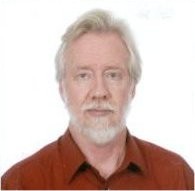Philip Musgrove '62 on NPR: Threatening a Life to Save Another

Philip Musgrove '62
Details
Philip Musgrove '62 never thought he'd have to threaten one person's life to save another.
But that's exactly what happened the day he found a workman in the throes of what seemed to be a heart attack, Musgrove told NPR during its August 21“Morning Edition” broadcast. Musgrove, a health economist and editor at the journal Health Affairs, drove the man to the emergency room and presented him to the receptionist—who, instead of admitting him immediately, fired off a barrage of administrative questions: What was his name? Social Security number? Did he have health insurance?
Afraid that the workman would die during this fruitless exchange, Musgrove exploded:“Lady, if you let him die, you're going to be the second person to die in this emergency room this afternoon!” The threat worked; the workman's life was saved, and several days later, when he called Musgrove to thank him, he explained that the problem hadn't been a heart attack, but ripped stitches from recent lung surgery filling his lungs with fluid.
Musgrove was left wondering how such an incident was even possible, how a well-regarded academic hospital hadn't educated its receptionist in what was considered an emergency.“Behind that hospital was a health care system without an effective, electronic way to locate records of a person's medical facts,” he told NPR.
Musgrove relayed a longer version of this story in an essay for the“Narrative Matters” section of Health Affairs, where he concluded that a proper health care system would include two key elements: universal health coverage and electronic health cards that record and identify crucial medical information.
To hear Philip Musgrove on NPR, go to www.npr.org/templates/story/story.php?storyId=93809839.



